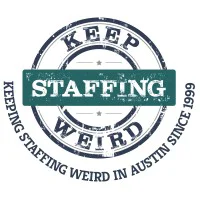Senior Software Engineer (C++)
closed
EpiSci
💵 $100k-$190k
📍Remote - Worldwide
Job highlights
Summary
Join EpiSci as a C++ Software Engineer and contribute to shaping the future of tactical mission autonomy. As a vital member of our growing team, you'll design and actualize architectures and systems for various Tactical autonomy applications. With a focus on developing groundbreaking, hybrid autonomous algorithms, you'll redefine the boundaries of commercial and defense applications.
Requirements
- Master’s degree in computer science/related engineering field
- 6+ years of hands-on experience developing C++ software for autonomous robotic systems
- Experience in developing software for autonomous robotic systems in C++
- High proficiency in modern C++ (2011, 2017, 2020, smart pointers, etc) w/CMAKE in Docker-based Linux environments
- Strong procedural and object-oriented programming experience that employs clean code principles and good OOP design patterns/principles
- Strong software architecture design experience
- Experience developing in Docker and containerized development environments, and using Linux-based operating systems (e.g., RHEL, Ubuntu)
- Experience using git, Visual Studio Code, GitLab, Nexus, SonarQube, Azure Container registry
Responsibilities
- Write modern C++ software that operates real autonomous aircraft systems including F16 fighter jets, group 1-5 unmanned aerial vehicles (UAVs), as well as simulated models and more to accomplish tactical military missions
- Collaborate with autonomy engineers to implemented production level software to control autonomous UASs
- Implement, leverage and improve state-of-the-art unmanned aerial system (UAS) autonomy algorithms in C++ for the following autonomy categories to perform tactical military missions
- Autonomy loops such as: “Sense, Make Sense, Decide, Act (SMDA)” , “Observe, Orient, Decide, Act (OODA)” loops., “Perceive, Decide, Act’ (PDA)” loops
- Sense: Environment sensing and modeling, computer vision, sensor processing, classification, anomaly detection
- Make Sense: Environment mapping, data interpretation, 3D voxel grids, GeoGrids, WGS84, aerospace coordinate systems and reference frames (northeast down (NED), Geocentri & Geodetic latitudes, Earth-centered-inertial (ECI), earth centered earth fixed (ECEF)), no fly zones, keep-in/keep-out zones. Sensor fusion and target tracking, etc. Find, fix, track, target (F2T2)
- Decide: State machines, behavior trees, optimization algorithms, constraint solving, classic algorithms (A*, RRT*, DFS, BFS, Branch & Bound, Random Forests), heuristics, optimization, Kalman filters, particle filters, etc. Artificial intelligence techniques such as deep reinforcement learning, reinforcement learning, machine learning, neural networks, supervised learning, unsupervised learning, generic algorithms, Bayesian networks, fuzzy logic, etc
- Act: Autonomous 2D & 3D UAS trajectory/motion planning, route planning, SLAM. Classical controls systems, optimal control systems, adaptive control systems, model predictive control systems, especially for integration of 3rd party UAS autopilots. Guidance, navigation, and controls (GNC)
- Build, leverage, and improve C++ robotic autonomy software architectures that can be deployed on real systems to accomplish military missions (including publish/subscribe architectures)
- Design C++ autonomy software in collaboration with autonomy engineers that supports full integration with aircraft autopilots, datalinks, sensors, PNT/GPS/INS, ground control stations, etc
- Support live flight test of autonomy software on F16s, group 1-5 unmanned aerial vehicles (UAVs)
- Collaborate with 3rd party UAS vehicle vendors on the integration of EpiSci autonomy software onto OEM UAS hardware
- Collaborate with domain experts and prior DoD warfighters (ex. DoD fighter pilots) to build software autonomy solutions for military missions
Benefits
$100,000 - $190,000 a year
This job is filled or no longer available
Similar Remote Jobs
- 💰$171k-$210k📍United States
- 📍Worldwide
- 📍United Kingdom
 📍United States
📍United States- 📍Italy
- 📍Spain
- 📍Poland
- 📍Portugal
- 💰$225k-$255k📍United States
- 💰$225k-$255k📍United States





